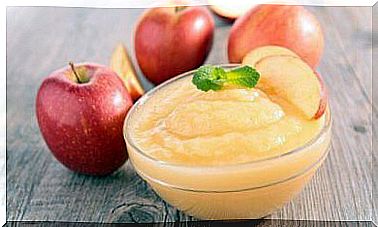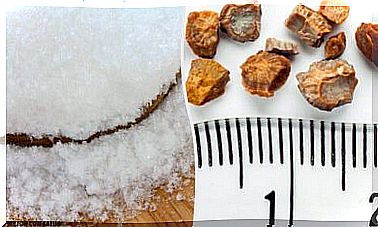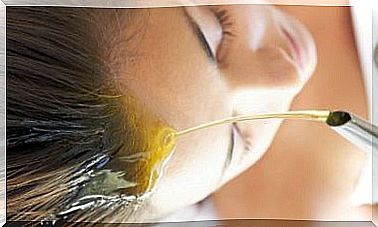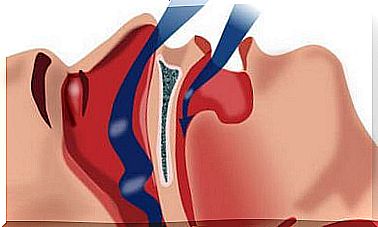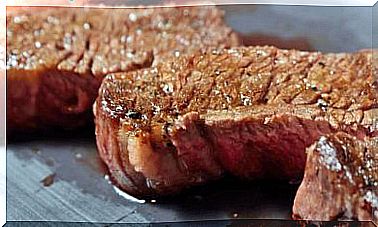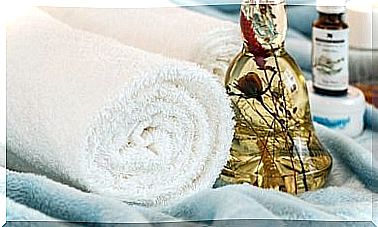Prevention And Treatment Of Oral Blisters
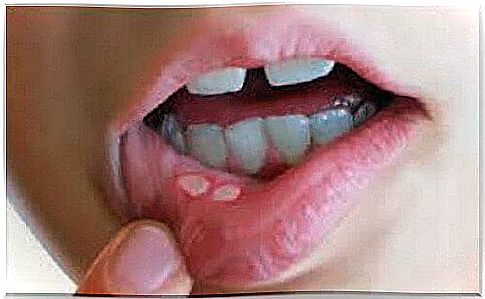
It is important to define at the outset that when we talk about blisters or ulcers in the mouth, we mean open wound-like blisters in this mouth . The prevention and treatment of oral blisters is important as they are really painful ailments. These blisters can be either white or yellow in color. Usually, such mouth ulcers have a bright red area around them.
Viral infections can be the cause of their appearance, but in some cases it is impossible to find out the exact cause of the blister. In this article, we’ll tell you more about preventing these oral blisters or ulcers, and present a few home treatments to curb the discomfort they cause and speed up healing. Prevention and treatment of oral blisters is easy to do at home and does not necessarily require a doctor’s appointment.
Blisters in the mouth can be related to the body’s immune system, as they usually appear as a result of an event that affects the mouth. These can be, for example, operations performed by a dentist or an accidental bite of the cheek or tongue. In the following, we explain in more detail the causes of these ulcers as well as ways to prevent them from appearing.
So why do oral blisters appear?
Reasons may include:
- emotional stress
- low intake of vitamins or minerals – these can be, for example, iron, folic acid or vitamin B12
- hormonal changes
- changes caused by the menstrual cycle
Blisters in the mouth can occur to anyone, both women and men. However, it should be noted that they are more common in women. Prevention of oral blisters may be difficult in some cases, as they may also be linked to hereditary factors.
How to identify a blister of mouth?
- A red and painful pimple that later forms a blister.
- The ulcer is yellow in color.
- Discomfort and sometimes also fever.
Pain caused by blisters in the mouth can last for 7 to 10 days, and sometimes this time can last up to three weeks. However, the time required for the blister to heal depends on its size.
Prevention of oral blisters
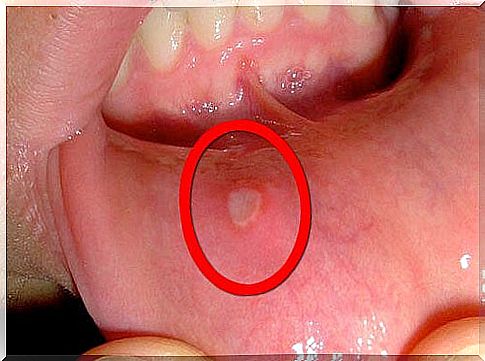
One way to prevent such mouth ulcers is to make sure you get enough vitamins and iron. These are found in foods that are high in animal or vegetable protein. In the following, we list the products that are important for this issue.
- Vitamin B2. Inadequate intake of this vitamin causes cracks at the edges of the mouth as well as in the skin, and can be obtained from bread, whole grains, leafy vegetables, and milk.
- Vitamin B3. Eating this vitamin will help prevent diseases in the mouth area and can be obtained by eating red and white meat, milk and dairy products, as well as eggs, among other things.
- Folic acid. If you do not get enough of this acid in your body, you are making yourself more likely to develop blisters in your mouth. This deficiency is also associated with the occurrence of anemia. However, it should be noted that ingestion of large amounts of folic acid may be harmful to health, so supplements containing this substance should be included in the diet only if your doctor recommends it.
- Vitamin B12. In order to get the necessary amount of this vitamin, you should eat products of animal origin such as seafood and meat, as well as dairy products are recommended.
- Vitamin C. If you do not get enough vitamin C in your body, it will not result in mouth ulcers, but instead there is a chance of bleeding gums. Foods that are high in this vitamin include citrus fruits as well as other fruits and vegetables.
- In addition, there are two diet-related factors that are useful in this regard. One is probiotics, and the other is foods that have Omega-3 fatty acids. Both of these have anti-inflammatory effects, and in addition, according to a study by the University of Kentucky, they have antibacterial properties. So take full advantage of foods that naturally help you fight blisters in your mouth and avoid products that have been processed or modified. Products with natural probiotics include natural yogurt and fermented dairy products. Products high in omega-3 fatty acids include fish, sunflower oil and nuts.
Remember this too!
If your daily diet has been deficient in nutrient intake, it is likely that a visible result is the development of oral blisters. So for safety, it’s a good idea to be aware of ways you can relieve the pain or discomfort caused by blisters.
Although the American Dental Association has found that in most cases, oral blisters disappear on their own, there are options to speed up their healing as well as relieve symptoms.
- Certain types of mouthwashes used specifically to treat blisters are commonly available, but we still recommend the use of milder rinses here.
- So use ulcers to treat your home-made mouthwash, which is very easy to prepare by mixing water and salt. Alternatively, you can use baking soda.
- Another way is to mix the water with a dilute hydrogen peroxide solution, and put this liquid directly into the blister with the help of a cotton swab.
You can repeat these treatments as often as you see fit – they can speed up the healing of your blisters as well as improve your well-being.
